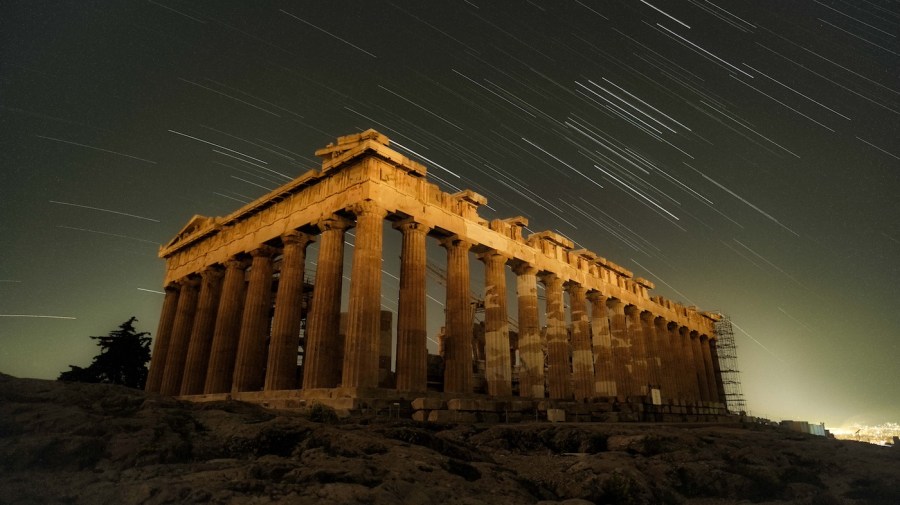Just In News | The Hill
For a brief shining moment, Congress put aside partisan stupidity to focus on something that was common in the America I grew up in, but which is seen less often today — bipartisan stupidity. In this case, the House moved quickly to force the social media app TikTok to either be sold to a company not under Chinese control or face a ban in the United States.
The two parties are motivated by substantially the same concerns about TikTok and seek substantially the same remedies. While the problems with TikTok are real, the remedies are totally inappropriate on basic philosophical grounds that should be obvious in a republican society — but, alas, clearly are not.
The core concern of proponents of the bill is that the Chinese state could use TikTok to disseminate the narrative it chooses, suppress narratives it does not, and foment social and political unrest (though I note we are doing fairly well at that by ourselves). The critical question, which I can find raised nowhere, is whether it follows that we must try to remove those dangers through the strong arm of the state.
Those critiques of the bill which can be found focus on whether its measures would be effective, whether other less extreme measures would be equally or more effective, whether the socially valuable aspects of TikTok are being inadequately considered, and so forth. Nearly all of these arguments have merit, but they are policy critiques. Deeper down is a more fundamental philosophical concern.
A more practical guide to these issues can be found in Pericles. In his famous funeral oration, he remarked on Athenian society:
We throw open our city to the world, and never by alien acts exclude foreigners from any opportunity of learning or observing, although the eyes of an enemy may occasionally profit by our liberality; trusting less in system and policy than to the native spirit of our citizens; while in education, where our rivals from their very cradles by a painful discipline seek after manliness, at Athens we live exactly as we please, and yet are just as ready to encounter every legitimate danger.
Taking this justly celebrated passage phrase by phrase may put us on a wiser path.
As a republic, America too “throws open our city to the world” and allows Chinese nationals to enter and participate in our society both physically — as the Athenians did the Spartans — and through the internet. Pericles freely acknowledges the danger in this, but does not, as our congressmen do, conclude that the danger should be removed. We must be “ready to encounter every legitimate danger,” but not through “system and policy.” Instead, Pericles intends to strengthen and renew “the native spirit of our citizens,” the open and “liberal” culture of Athens that he believes will make it stronger and more resilient than comparatively authoritarian and martial Sparta. Athenians do not run from danger, but meet it with the virtue of their citizens.
Crucially, this is not a moral claim but a practical and political one. Democratic virtue is believed to be a stronger and more reliable force than authoritarian discipline; genuine consent from the people more powerful than any authoritarian coercion. In the end, Athens fell to Sparta, but perhaps because it inadequately heeded Pericles’s advice. In any event, Periclean sentiments and similar sentiments from Cicero and Tacitus went on to inform Milton and Pope, and, eventually, Jefferson and Madison. I would see them continue far into the future.
We cannot rely on authority, whether large tech companies removing content deemed pernicious or the government banishing propaganda deemed too dangerous for the American people. These are attempts to circumvent the public; despairing of its ability to make good choices, these measures attempt to prevent the public’s confronting any choice at all. We ought instead to strengthen the public and reinforce our traditional virtues with civic education and strong moral and political leadership.
While I am deeply opposed to the attempt to construct a new Cold War either with China or with global authoritarianism, I do believe the liberal-democratic model and the authoritarian model are, and for a long time will be, engaged in a kind of competition. It seems a deep irony that those Americans who claim to be most greatly invested in the democratic model and its triumph over authoritarianism are often the first to sand away those things that make us democratic.
Keep America open and keep TikTok. If TikTok can overthrow our republic, we do not deserve to keep it.
David Ottlinger is a freelance writer focusing on politics and culture, especially from a philosophical perspective. Follow him @DavidOttlinger.
Technology, Opinion Read More
Author Profile
Latest entries
 ScienceApril 29, 2024Team pins down huge cost of mental illness in the US
ScienceApril 29, 2024Team pins down huge cost of mental illness in the US HeadlinesApril 29, 2024Granger Smith's wife, Amber Smith, partners with drowning prevention organization to drive awareness
HeadlinesApril 29, 2024Granger Smith's wife, Amber Smith, partners with drowning prevention organization to drive awareness ScienceApril 28, 2024Bacteria could replace fossil fuels for making valuable chemicals
ScienceApril 28, 2024Bacteria could replace fossil fuels for making valuable chemicals HeadlinesApril 28, 2024White House denies secret plot to oust Karine Jean-Pierre as Biden faces more bad news
HeadlinesApril 28, 2024White House denies secret plot to oust Karine Jean-Pierre as Biden faces more bad news

